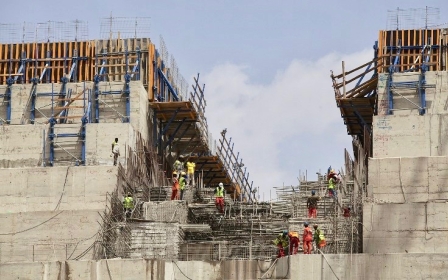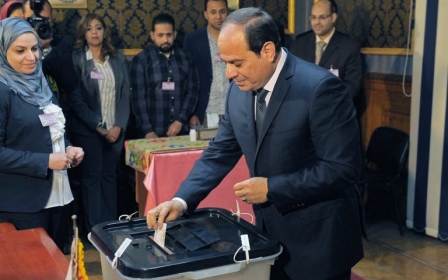Egypt's Sisi reshuffles key government posts
Egypt appointed a new government on Thursday, replacing several key ministers as President Abdel Fattah al-Sisi pushes ahead with tough economic reforms and security-tightening measures.
Cairo, Washington's key regional ally, is set to enact more tough IMF-backed austerity measures in coming years in an effort to bolster investment and create jobs in an economy battered by unrest after the 2011 Arab uprisings.
The cabinet, headed by Prime Minister Mustafa Madbouly, who was appointed last week after Sisi's virtually unopposed election to a second term in April, includes new ministers of defence, interior, trade, finance and agriculture.
It is the broadest government shake-up since Sisi was first elected in 2014, a year after he overthrew freely elected Islamist president Mohamed Morsi, as chief of the armed forces.
The IMF-driven measures are to include cutting fuel subsidies, a move likely to upset large sections of the population that are already struggling to make ends meet.
Egypt is also trying to improve security, with its military battling an Islamic State (IS) group campaign in the Sinai Peninsula.
Sisi's critics say he is presiding over the worst crackdown on freedoms in Egypt's modern history. Authorities have arrested thousands of dissidents since 2013.
The new ministers took their oath in front of Sisi at the presidential palace in Cairo in a televised ceremony.
Mohamed Ahmed Zaki, head of the elite Republic Guard which protects the president, became defence minister. He replaced Sedki Sobhi, who as commander in chief of the military had overseen efforts to crush militants in Sinai behind attacks that have killed hundreds of security force personnel and civilians.
The interior ministry went to Mahmoud Tawfik, who served as chief of the domestic National Security Service under Sisi. Magdi Abdel Ghaffar had held the interior post since 2015.
Mohamed Maait, deputy finance minister in the outgoing cabinet, was promoted to minister, replacing Amr El Garhy, who helped to guide economic reforms tied to Egypt's three-year $12bn International Monetary Fund (IMF) loan.
The IMF programme began in late 2016 with a flotation of Egypt's pound currency, which halved its value, hitting many ordinary Egyptians hard.
Other key cabinet changes include Amr Adl Bayoumi, appointed minister of trade, and Ezz el-Din Abu-Steit as minister of agriculture. A total of 12 ministerial positions changed hands.
Sisi won re-election in April with 97 percent of the vote after a campaign season that saw a top challenger jailed and all other serious contenders pull out.
New MEE newsletter: Jerusalem Dispatch
Sign up to get the latest insights and analysis on Israel-Palestine, alongside Turkey Unpacked and other MEE newsletters
Middle East Eye delivers independent and unrivalled coverage and analysis of the Middle East, North Africa and beyond. To learn more about republishing this content and the associated fees, please fill out this form. More about MEE can be found here.




